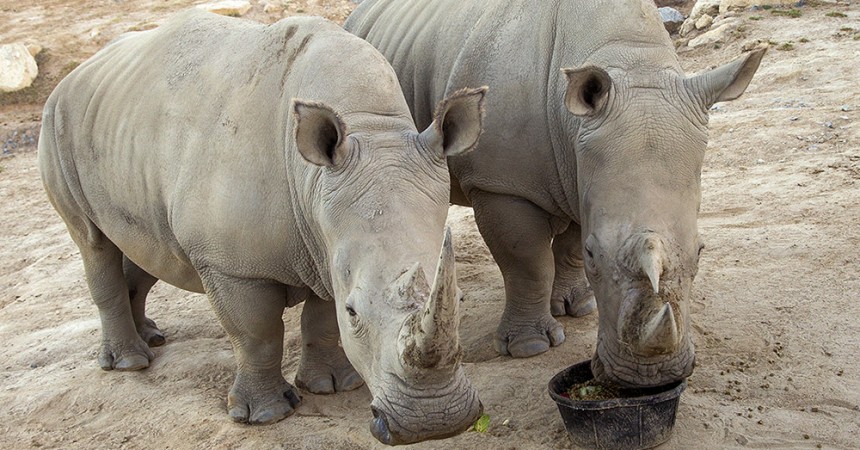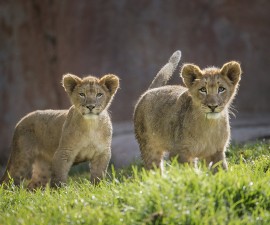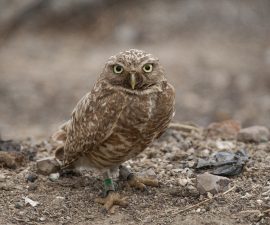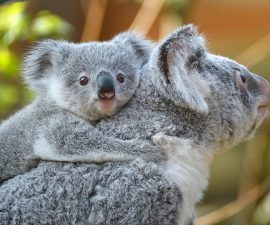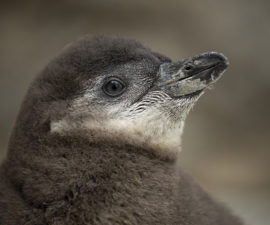The reproductive physiology team at the San Diego Zoo Institute for Conservation Research has been working for seven years to determine why southern white rhino females born in zoos tend not to bear offspring as often as their wild relatives. It was recently discovered that the animals may be sensitive to compounds called phytoestrogens found in soy and alfalfa, which are a component of the animals’ diets in zoos.
“During their 16-month gestation, female calves could be exposed to the compounds through their mother’s diet, resulting in permanent infertility issues later in their life,” explained Christopher Tubbs, Ph.D., a scientist in the Reproductive Physiology Division of the San Diego Zoo Institute for Conservation Research. “Through our studies, we have found these plant-based phytoestrogens activate receptors that regulate estrogen function.”
Only about one-third of southern white rhinos in zoos successfully reproduce in their lifetime, making a sustainable population a challenge. This problem is not found in other species of rhinos living in zoos. To find a solution to this complex reproductive problem, Tubbs and his colleagues have spent extensive time in the lab, testing the diets of southern white rhino females at the San Diego Zoo Safari Park, as well as those of female southern white rhinos from eight other zoological facilities in the U.S. Many of these diets were found to be high in phytoestrogens.
On the basis of Tubbs’ findings, Michael Schlegel, Ph.D., director of Nutritional Services at San Diego Zoo Global, recently developed a grass-based pellet for rhinos that is low in phytoestrogens. “Besides formulating the pellets that are low in phytoestrogens, we also are ensuring the pellets are supplying concentrations of nutrients that will support reproduction,” stated Schlegel. The pellets are currently being fed to the southern white rhinos at the Safari Park, with the hope that the lower phytoestrogen content will help solve this reproductive issue. Further diet studies will continue, including research on how phytoestrogens are metabolized in the rhino gut. While the reproduction of white rhinos in zoos is still uncertain, the development and implementation of new science-based efforts could be beneficial to the conservation of white rhinos in the future.
The project has reached a real point of urgency, due to the increase in poaching in recent years that has dramatically affected rhino populations in the wild. “When I started this project in 2007, 13 rhinos were poached (that year),” stated Tubbs. “Last year, more than 1,200 southern white rhinos were poached in South Africa—one every eight hours. More than ever, we need a self-sustaining population of white rhinos established outside of Africa.”
Rhinos are poached for their horn, which is made of keratin—the same material that forms human fingernails. Rhino horn has been erroneously thought to have medicinal value and is used in traditional remedies in some Asian cultures. In addition, objects made of rhino horn have more recently become a “status symbol,” purchased to display someone’s success and wealth, because the rhino is now so rare and endangered.
Bringing species back from the brink of extinction is the goal of San Diego Zoo Global. As a leader in conservation, the work of San Diego Zoo Global includes on-site wildlife conservation efforts (representing both plants and animals) at the San Diego Zoo, San Diego Zoo Safari Park, and San Diego Zoo Institute for Conservation Research, as well as international field programs on six continents. The work of these entities is inspiring children through the San Diego Zoo Kids network, reaching out through the Internet and in children’s hospitals nationwide. The work of San Diego Zoo Global is made possible by the San Diego Zoo Global Wildlife Conservancy and is supported in part by the Foundation of San Diego Zoo Global.
Photo taken on Sept. 29, 2015 by Tammy Spratt, San Diego Zoo Safari Park.

